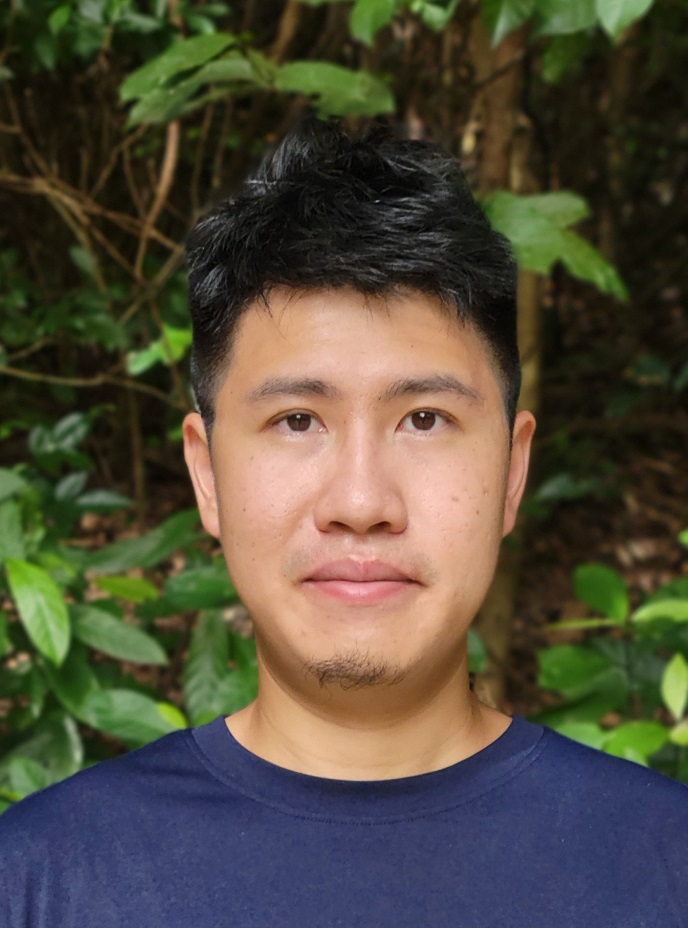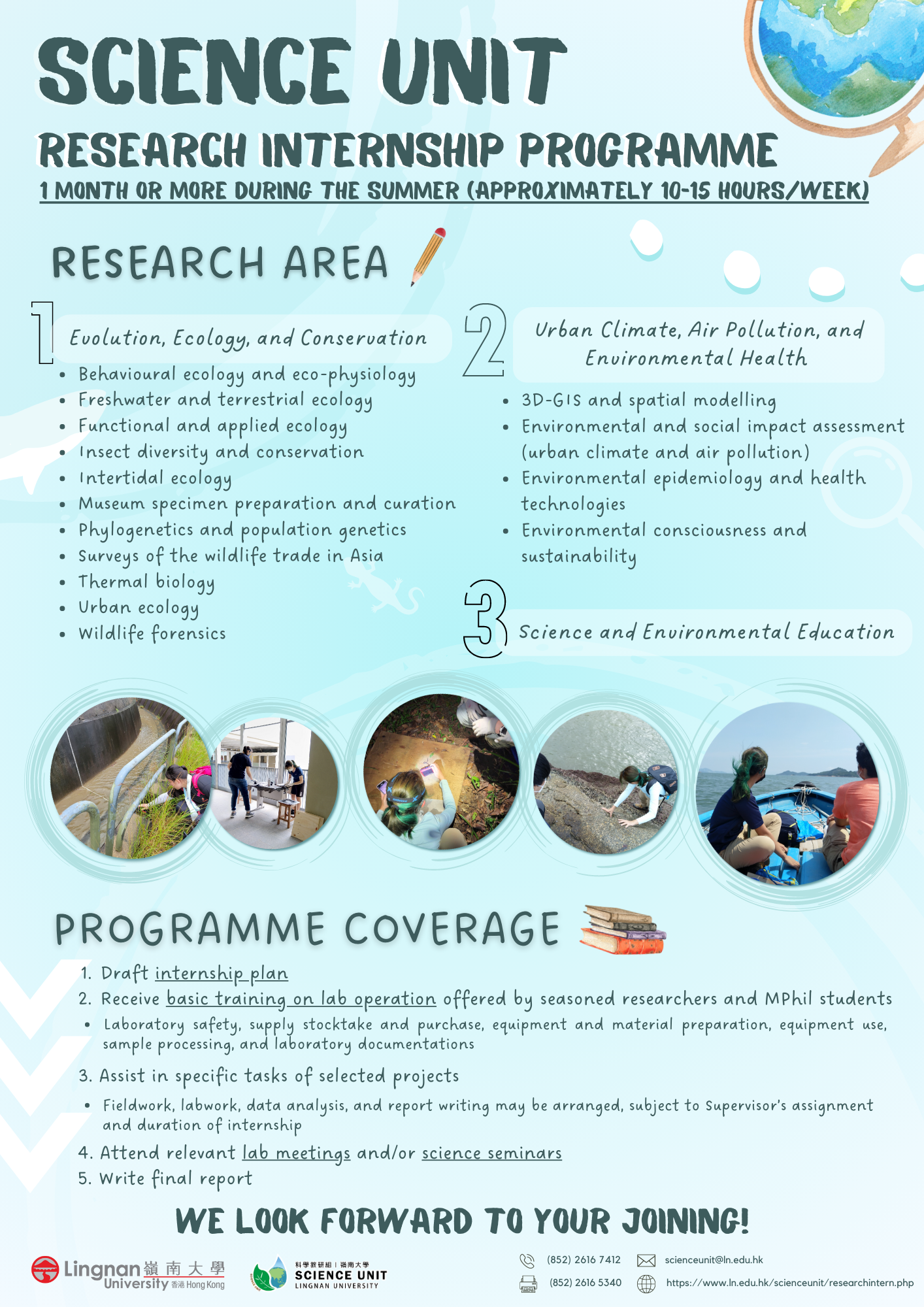
 |
 |
 |
Introduction
The Science Unit (SU) started the Research Internship Programme with aims to provide opportunities to the students from secondary schools (senior grades), associate programmes, and undergraduate programmes to gain hands-on experience on selected research projects under the guidance of a professoriate staff member of the SU, supported by a team of energetic and passionate research assistants and MPhil students. The internship, in general, will be on a part-time basis during the summer for a minimum duration of one month.
Key Research Areas
The SU now has five members whose research and teaching interests cover core areas of environmental science including ecology, evolution, geology, geography, urban studies, and environmental education. Key areas of research interest are as follows:
| Evolution, Ecology, and Conservation |
| • Behavioural ecology and eco-physiology • Freshwater and terrestrial ecology • Functional and applied ecology • Insect diversity and conservation • Intertidal ecology • Museum specimen preparation and curation • Phylogenetics and population genetics • Surveys of the wildlife trade in Asia • Thermal biology • Urban ecology • Wildlife forensics |
| Urban Climate, Air Pollution, and Environmental Health |
| • 3D-GIS and spatial modelling • Environmental and social impact assessment (urban climate and air pollution) • Environmental epidemiology and health technologies • Environmental consciousness and sustainability |
| Science and Environmental Education |
Programme Structure
Depending on the supervisor assigned, research interns will be involved in different research and outreach projects with varied duties and tasks (on-campus and/or off-campus). A general scope of work is as below:
| 1. Draft internship plan |
| 2. Receive basic training on lab operation offered by seasoned researchers and MPhil students - Laboratory safety, supply stocktake and purchase, equipment and material preparation, equipment use, sample processing, and laboratory documentation. |
| 3. Assist in specific tasks of selected projects - Fieldwork, labwork, data analysis, and report writing may be arranged, subject to Supervisor’s assignment and duration of internship |
| 4. Attend relevant lab meetings and/or science seminars |
| 5. Write final report |
Expertises
 |
 |
 |
 |
 |
| Prof. Jonathan Fong | Prof. Paulina Wong | Prof. Anthony Lau | Dr. Tommy Hui | Dr. Roger Lee |
Programme Poster

|
*Application period: 17 April 2023 to 16 May 2023* |
Enquiry
Tel: 2616-7412 (Ms. Mei Chan)
Email: [email protected]


